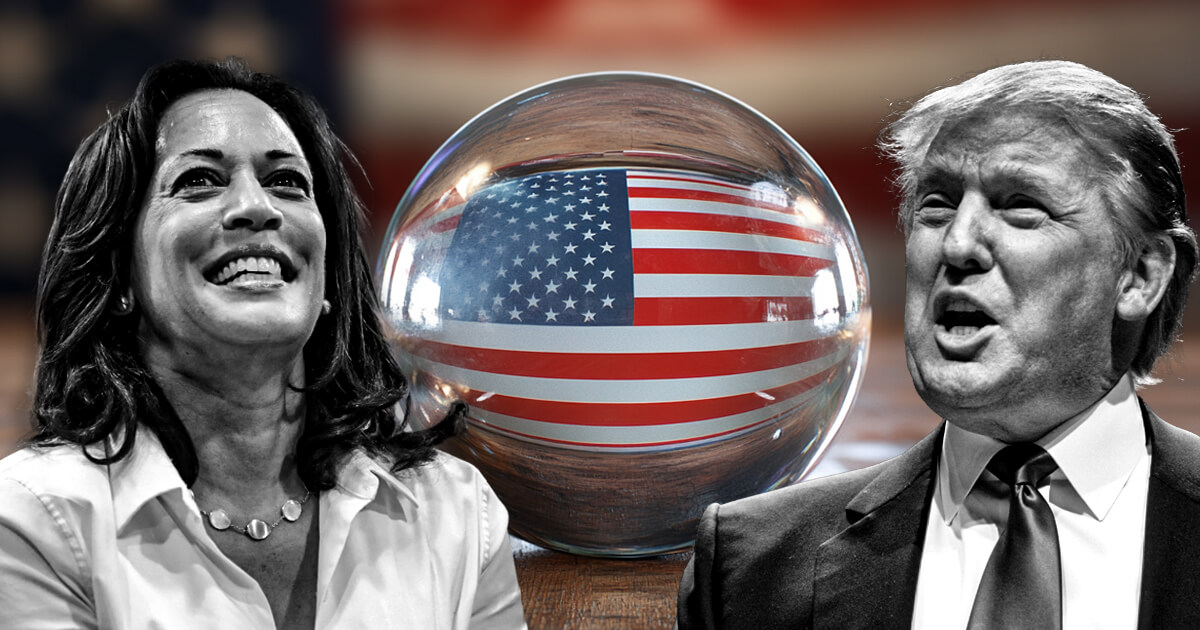
Polymarket has accumulated nearly $1 billion in bets on the United States 2024 presidential election winner.
Data from the platform currently ranks Vice President Kamala Harris, a Democratic presidential candidate, with a 50% chance of winning, backed by $135 million in wagers. Meanwhile, Republican candidate Donald Trump holds a close 49% chance, with bets totaling nearly $150 million.
Crypto’s role in the election has boosted activity on Polymarket, with both candidates showing interest in the sector. Harris’s team has indicated a shift from the current administration’s anti-crypto stance, while Trump has gained favor for his pro-crypto ventures.
With the election approaching, Polymarket has seen a surge in activity. Data from Dune Analytics shows over 40,000 traders are placing bets, driving up the platform’s volume by nearly tenfold compared to a year ago.
Challenges ahead
However, the decentralized platform must figure out how to sustain its volumes after the US presidential elections, according to a report from the Crypto.com exchange.
In a Sept. 16 thread on X, the exchange noted that the decentralized marketplace would face new competition as the sector matures, pointing out that the development of Solana-based BET poses significant challenges to its dominance.
Crypto.com emphasized the issue of liquidity in prediction markets, stating that BET by Drift introduces fresh competition. The report highlighted that BET benefits from existing liquidity on decentralized exchanges (DEXs), not just from prediction market competitors.
Due to this, the exchange noted that Polymarket has to grow its liquidity in sports or significant crypto events because “players with existing liquidity and horizontal expansion capabilities (e.g., DEXs) could be a serious contender in the [prediction] space.”
BET was launched in August on Solana as a competitor to the Polygon-based protocol. Since then, the platform has enjoyed considerable adoption, drawing around $25 million in total bets on the US elections.
Away from the BET’s threat, the platform also has to navigate a regulatory regime that might threaten its operations. The US Commodity Futures Trading Commission (CFTC) has proposed a ban on “event contracts” and is recently battling a lawsuit to ensure that Kalshi, a US-based prediction market platform, does not offer election-related betting.
